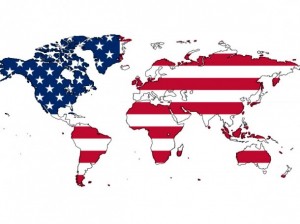Michael Pettis writes: Because the US economy and its financial markets are so large and flexible, and because many other economies have large players – usually the state – whose behavior can drive deep domestic imbalances, it is often the US that responds to events driven abroad. For example after the 1997 Asian external debt crisis, a number of Asian countries began to accumulate US dollar reserves, and this accumulation accelerated in the next decade. It is purely an accounting identity that if other countries become next exporters of capital to the US, they must run current account surpluses (although not necessarily bilateral surpluses, which are in fact unlikely) and the US must run current account deficits (although not necessarily bilateral deficits, of course), and it is also purely an accounting identity that if the US runs a current account deficit, its domestic savings must be lower than its domestic investment.
Every economist knows this, or should know this, and yet to say that the surge in the US current account deficit during the decade before the 2007-8 crisis was a necessary adjustment to Asian reserve accumulation policies of the last decade is considered an extremely political statement. Some economists in the US counter this claim by arguing that the US deficit cannot be caused by Asian reserve accumulation polices because it has bilateral deficits with many countries, or, what is even more absurd, because it has a low savings rate. It is true that in principle the capital-flow imbalances could have been caused by a decision by American households to reduce their savings rates sometime around 1997, which forced someone else – the East Asians, for some reason – to raise their savings rate, but it is hard to explain why excess US demand for foreign savings, and not excess supply of foreign savings, would have been accommodated by declining, not rising, interest rates.
It seems so logical, and yet it has become such a politicized argument in which the balance or payments identities are almost never invoked. I suspect the prejudice that only Americans can act independently, and everyone else must respond, may exist at least in part because most economists have either studied in the US or have studied under US-trained economists, and so without realizing it have developed a US-centric view of the world that cannot posit an alternative world.

